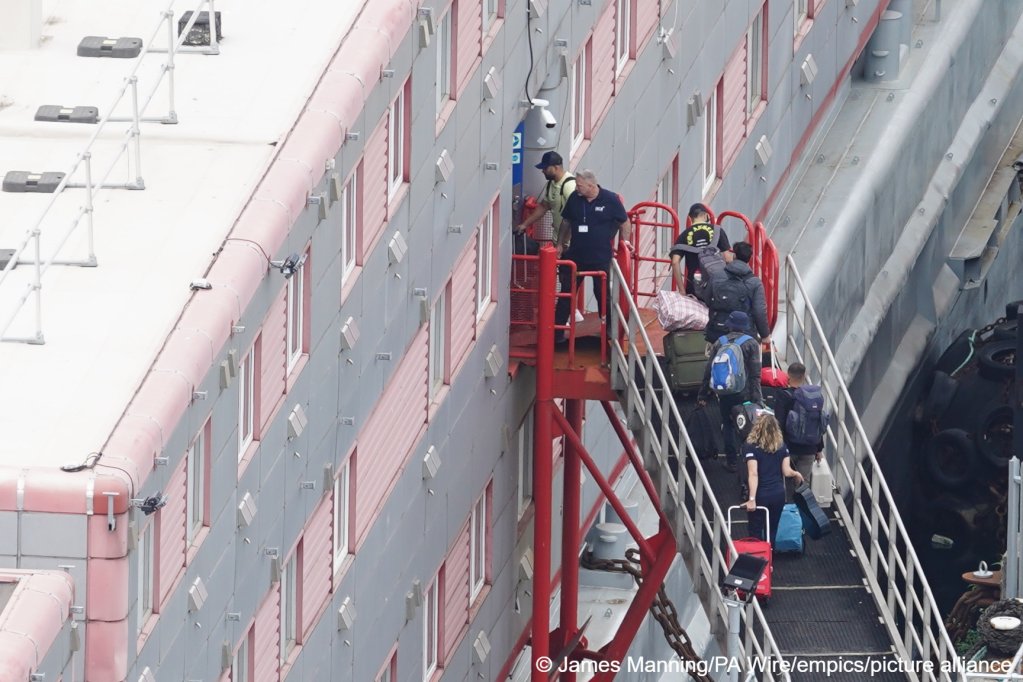Asylum seekers are at increased risk of mental health distress because of the many forms of trauma and violence they may experience throughout their journey. A UK charity called for a trauma-informed approach to the asylum claim system to avoid re-traumatizing migrants.
The racially motivated riots that erupted across the United Kingdom last year were among the key factors that contributed to the worsening mental health of asylum seekers, a research by a charity focusing on mental health and well-being found.
The report aboout the mental health of refugees and asylum seekers, published annually by the Mental Health Foundation (MHF), stated that previous studies had already indicated the negative impact of the increasing incidence of attacks on asylum shelters. However, the harassment escalated during the summer of 2024 when anti immigrant riots erupted across the country. The massive public outcry was in response to the false claims on social that the perpetrator suspected of killing three school children in Southport was a Muslim asylum seeker.
The online hate quickly translated to real life violence. Rioters targeted mosques and accommodation centers housing asylum seekers. In Rotherham, more than 200 asylum seekers were trapped inside the hotel that served as their accommodation center as rioters shouted racial slurs and smashed windows and later, attempted to set fire to the building.

''Such events have heightened the sense of fear and insecurity already prevalent among many asylum seekers and refugees especially those in publicly known accommodation,'' said the report.
One asylum seeker quoted in the study said, "Everyone knows where you stay so you’re an easy target."
The flagrant public display of hostility towards migrants and asylum seekers does not seem to adequately reflect public opinion surveys, indicating that overall, people support welcoming people who have fled war and persecution in their countries of origin. For example, research conducted by Ipsos, conducted in 2024 and cited by MHF, indicates that while the proportion of people who think migration has had a positive impact on Britain has steadily decreased since July 2022, the overall sentiment is still positive. Overall, the survey found that four in ten people think migration has had a positive impact on the country, over a third, or roughly 35 percent, disagree.
Read AlsoUK riots: How far-right actors capitalized on public anger
Assaults in centers under government contracts
A report by the British newspaper The Guardian revealed that migrants and asylum seekers also experience violence in asylum centers.
Data obtained using Freedom of Information Laws indicate that the UK Home Office recorded an average of 10 assaults a day on asylum seekers in its care. From January 2023 to August 2024, there were close to 6,000 referrals of assaults on asylum seekers.
Reports further indicate that the Home Office received 11,547 reports that people in its care were victims of trafficking and 4,686 reports that they were victims of torture.
Trauma-informed approach
According to MHF, mental health wellness can be particularly elusive for asylum seekers and refugees because of the varied challenges they may encounter during the course of their journey. MHF noted that before even starting their migration journey, migrants may experience torture, war, imprisonment and assault and the loss of family members. Distress is compounded by the actual journey which can often involve perilous transport or trekking heavily guarded trails. The social and economic conditions in which they live post-migration can have an equally powerful influence on their mental health.

In addition to the distress these experiences cause, they can exacerbate existing mental health conditions and lead to the development of new ones, the MHF explained.
The recommendations in the MHF report called for a trauma-informed approach to the asylum claim system, which in its current state, reinforces trauma, according to MHF.
In terms of organizational structure, the MHF said that a trauma-informed approach would mean training all sectors and groups working with asylum seekers and refugees in sensitive, respectful approaches that recognize the diversity of trauma migrants may experience.
Additionally, safeguarding protocols in asylum accommodation sites and detention centers should ensure that asylum seekers are protected from discrimination and harassment from members of the public and from staff.
MHF also stressed the importance of including refugee communities with a say in public policy decision-making so their lived experiences are considered.
The asylum claim system should not retraumatize indviduals or create new trauma, the MHF concluded.
Read Also"I have flashbacks of the incident," survivor of deadly boat accident in English Channel
